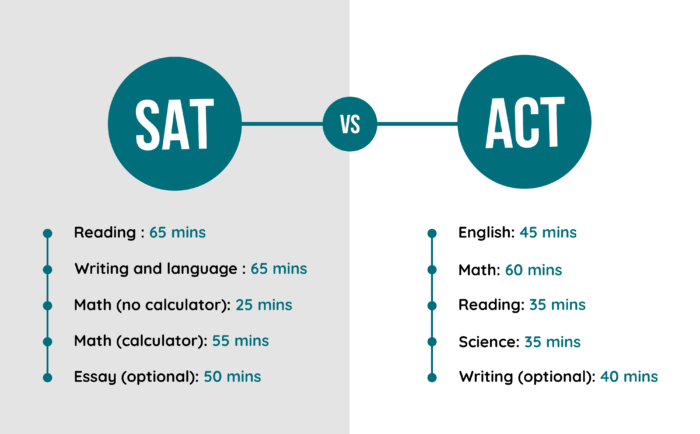If you’re preparing for college admissions, chances are you’ve heard of the SAT and ACT. These standardized tests are like the gatekeepers of the college application process, helping schools evaluate applicants on a common scale. But with two options to choose from, how do you know which test is right for you? Don’t worry; we’ve got you covered. Let’s dive into the differences, pros, and strategies to help you make the best decision for your future.
What Are the SAT and ACT?

A Brief History
The SAT (Scholastic Assessment Test) has been around since 1926, initially designed to measure aptitude rather than knowledge. Over time, it has evolved to test skills in reading, writing, and math. The ACT (American College Testing), on the other hand, was introduced in 1959 as a more curriculum-based alternative. Its creators aimed to assess what students have learned in school rather than their inherent abilities.
Current Use in College Admissions
Both the SAT and ACT are accepted by almost every college and university in the United States. While some schools have test-optional policies, many still consider these scores as part of their admissions process.
Key Differences Between SAT and ACT

Structure and Format
The SAT consists of two main sections: Evidence-Based Reading and Writing (EBRW) and Math. There’s also an optional essay section (though it’s no longer required by most schools).
The ACT includes four sections: English, Math, Reading, and Science, with an optional Writing test.
Timing and Pacing
The SAT gives you slightly more time per question compared to the ACT. However, the ACT tends to have more questions overall, making it better suited for quick thinkers.
Scoring Systems
The SAT is scored on a scale of 400–1600, combining the EBRW and Math sections. The ACT, on the other hand, uses a composite score between 1–36, averaging the scores of its four sections.
Content Focus
The SAT leans towards testing critical thinking and problem-solving. The ACT emphasizes straightforward questions and includes a science section, which is more about data interpretation than hardcore science knowledge.
Factors to Consider When Choosing Between the SAT and ACT
Strengths and Weaknesses
Are you good at interpreting complex texts and solving puzzles? The SAT might be your forte. Prefer direct questions and faster pacing? The ACT could be a better match.
Geographic Preferences
The ACT is more popular in the Midwest and Southern U.S., while the SAT dominates the East and West Coasts.
School Requirements
Check the preferences of the colleges you’re applying to. While most accept both, some may lean slightly towards one.
Preparing for the SAT and ACT

Practice Tests
Taking mock exams is crucial to understanding your strengths. Websites like Khan Academy offer free SAT prep, while the ACT provides official practice tests.
Study Strategies
Focus on your weaker sections and practice time management. Create a study plan tailored to the test you choose.
Tutoring and Test Prep Courses
If self-study isn’t enough, consider investing in test prep courses or hiring a tutor for personalized guidance.
Common Myths About the SAT and ACT
“One is Easier Than the Other”
This depends on your skills. Some students find the SAT’s math harder, while others struggle with the ACT’s timing.
“Colleges Prefer One Test Over the Other”
Most schools don’t favor one test over the other; they simply want your best score.
“You Can’t Take Both”
You absolutely can! Taking both may help you identify which test plays to your strengths.
Making the Final Decision
Self-Assessment Checklist
Ask yourself:
- Which test format do I feel more comfortable with?
- How well do I manage time under pressure?
- Do I need a science section?
Consulting with Counselors
A college counselor can help you weigh your options and plan effectively.
Conclusion
Choosing between the SAT and ACT isn’t about picking the “better” test; it’s about choosing the right test for you. Both have their merits, and your decision should align with your strengths, preferences, and college goals. Take practice tests, assess your performance, and approach the process with confidence.
FAQs
- What is the most significant difference between the SAT and ACT?
The ACT includes a science section, while the SAT does not. - Should I take both tests?
Taking both can help you determine which test suits you better. - How do I decide which test to take?
Consider your strengths, school requirements, and comfort with each format. - Are test-optional colleges eliminating the need for SAT/ACT?
Some colleges are test-optional, but strong scores can still enhance your application. - How often can I retake the SAT or ACT?
You can take the SAT as many times as you like. The ACT also has no limits on retakes
